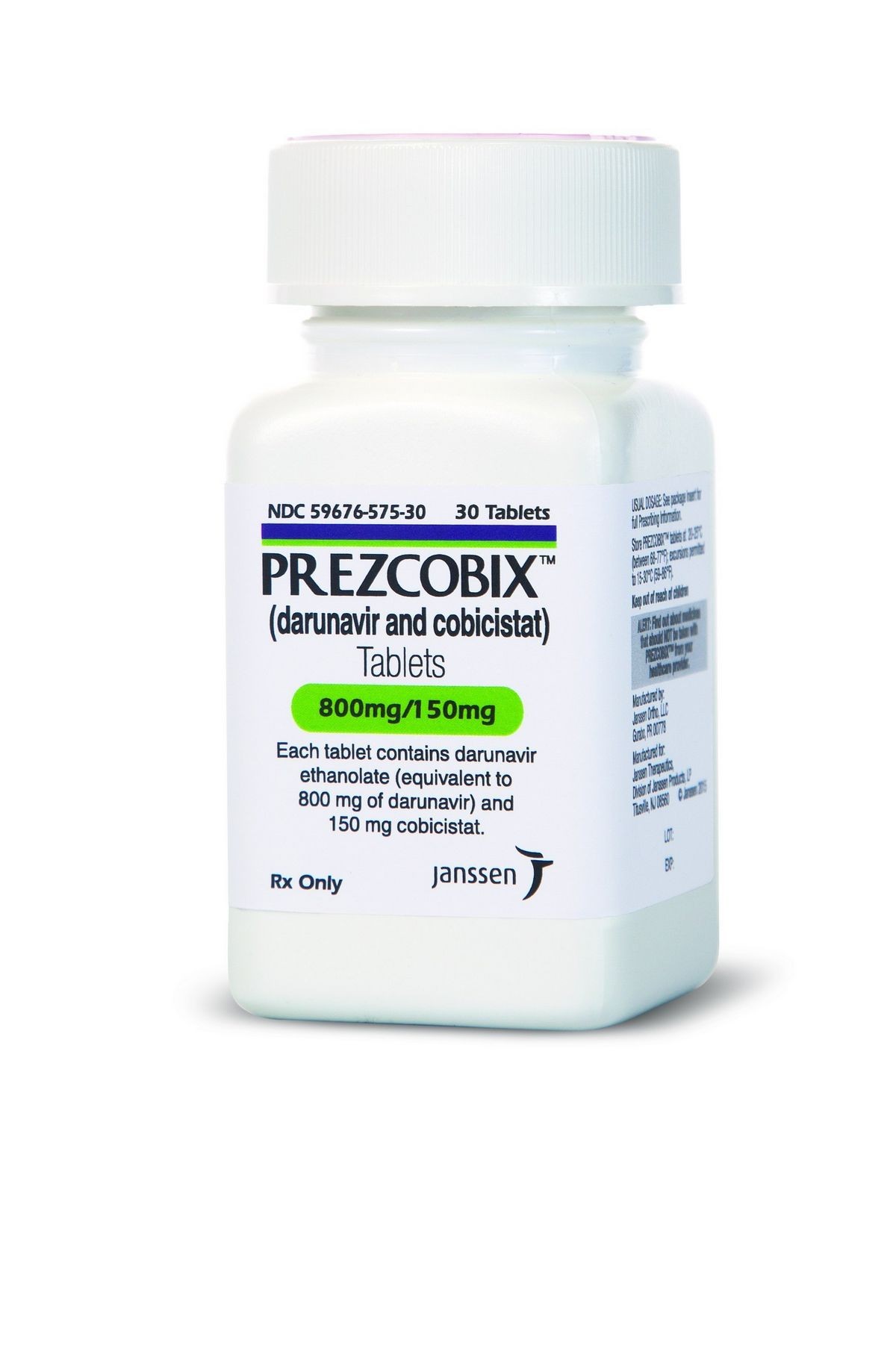
Contents
Prezcobix is a prescription medicine used with other HIV-1 medicines to treat HIV-1 infection in adults and children who weigh at least 88 pounds (40 kg).
Side Effects of Prezcobix
Prezcobix may cause serious side effects, including:
- Diabetes and high blood sugar (hyperglycemia). Some people who take protease inhibitors, including Prezcobix, can develop high blood sugar or worsen diabetes. Tell your healthcare provider if you notice increased thirst or urination while taking Prezcobix.
- Changes in body fat. HIV-1 medications may cause changes in body fat distribution, including fat accumulation in the upper back and neck ("buffalo hump"), breast, and trunk, and fat loss in the legs, arms, and face. The long-term health effects of these changes are unknown.
- Changes in immune system. Starting HIV-1 medicines can strengthen the immune system, leading to the onset of new symptoms due to the immune system fighting hidden infections. Contact your healthcare provider if you experience new symptoms after starting your HIV-1 medicine.
- Increased bleeding for hemophiliacs. Hemophiliacs may experience increased bleeding while taking protease inhibitors, including Prezcobix.
The most common side effects of darunavir, one of the medicines in Prezcobix, include:
This is not a complete list of possible side effects. Consult your doctor for medical advice or report side effects to FDA at 1-800-FDA-1088.
Dosage for Prezcobix
Recommended Dosage
Prezcobix contains 800 mg of darunavir and 150 mg of cobicistat. For treatment-naïve and treatment-experienced adults and pediatric patients weighing at least 40 kg with no darunavir resistance-associated substitutions, the recommended dosage is one tablet taken once daily with food, along with other antiretroviral agents.
Testing Prior to Initiation of Prezcobix
HIV Genotypic Testing
- HIV genotypic testing is recommended for antiretroviral treatment-experienced patients.
- When HIV genotypic testing is not possible, Prezcobix can be used in protease inhibitor-naïve patients but is not recommended in protease inhibitor-experienced patients.
Creatinine Clearance
- Assess estimated creatinine clearance before starting Prezcobix because cobicistat decreases estimated creatinine clearance without affecting glomerular function.
- When co-administering Prezcobix with tenofovir disoproxil fumarate (tenofovir DF), assess estimated creatinine clearance, urine glucose, and urine protein levels at baseline.
Not Recommended in Severe Renal Impairment
- Prezcobix co-administered with tenofovir DF is not recommended for patients with estimated creatinine clearance below 70 mL per minute.
Not Recommended in Severe Hepatic Impairment
- Prezcobix is not recommended for use in patients with severe hepatic impairment.
Not Recommended During Pregnancy
- Prezcobix is not recommended during pregnancy because of substantially lower exposures of darunavir and cobicistat during the second and third trimesters.
- Do not initiate Prezcobix in pregnant individuals. An alternative regimen is recommended for those who become pregnant during therapy with Prezcobix.
Drug Interactions with Prezcobix
Potential for Prezcobix to Affect Other Drugs
- Co-administration of darunavir and cobicistat inhibits CYP3A, CYP2D6, P-gp, BCRP, MATE1, OATP1B1, and OATP1B3.
Potential for Other Drugs to Affect Prezcobix
- Darunavir is metabolized by CYP3A, and cobicistat is metabolized by CYP3A and to a minor extent by CYP2D6.
- Co-administration of Prezcobix with drugs that induce CYP3A activity may decrease plasma concentrations, leading to loss of therapeutic effect and resistance development.
- Co-administration of Prezcobix with drugs that inhibit CYP3A may increase plasma concentrations of darunavir and cobicistat.
Established and Other Potentially Significant Drug Interactions
- Table 1 provides dosing recommendations for known clinically relevant interactions with Prezcobix. This list is not exhaustive. See prescribing information for contraindicated drugs.
Table 1: Established and Other Potentially Significant* Drug Interactions: Alterations in Dose or Regimen May Be Recommended
- Treatment of gout flares – co-administration of colchicine: 0.6 mg (1 tablet) x 1 dose, followed by 0.3 mg (half tablet) 1 hour later. Treatment course to be repeated no earlier than 3 days.
- Prophylaxis of gout flares – co-administration of colchicine: Adjust the original regimen of 0.6 mg twice a day to 0.3 mg once a day. Adjust the original regimen of 0.6 mg once a day to 0.3 mg once every other day.
- Treatment of familial Mediterranean fever – co-administration of colchicine: Maximum daily dose of 0.6 mg (may be given as 0.3 mg twice a day).
- Initiation of tadalafil in patients taking Prezcobix: In patients receiving Prezcobix for at least one week, start tadalafil at 20 mg once daily. Increase to 40 mg once daily based on tolerability.
- Initiation of Prezcobix in patients taking tadalafil: Avoid tadalafil use when initiating Prezcobix. Stop tadalafil at least 24 hours before starting Prezcobix. After at least one week following the initiation of Prezcobix, resume tadalafil at 20 mg once daily. Increase to 40 mg once daily based on tolerability.
- Patients switching from darunavir co-administered with ritonavir to Prezcobix: Maintain tadalafil dose.
Drugs Without Clinically Significant Interactions with Prezcobix
- No clinically relevant drug-drug interactions have been observed or are anticipated with concomitant use of darunavir and cobicistat with specific medications.
Is Prezcobix Safe During Pregnancy or Breastfeeding?
- Insufficient data are available on the use of Prezcobix in pregnant individuals to determine its associated risk with pregnancy outcomes.
- The Centers for Disease Control and Prevention advise against breastfeeding by HIV-infected mothers in the United States to prevent postnatal transmission of HIV.
- No data exist on the presence of darunavir or cobicistat in human milk, their effects on breastfed infants, or their impact on milk production.
- Darunavir and cobicistat are present in the milk of lactating rats. Therefore, breastfeeding is not recommended while receiving Prezcobix due to the potential risks posed to infants.
Summary
Prezcobix is a prescription medicine used to treat HIV-1 infection. Its serious side effects include diabetes, high blood sugar, changes in body fat, changes in the immune system, and increased bleeding for hemophiliacs.


